Category: Practices
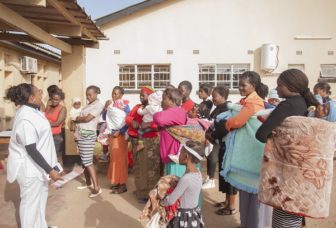
New white paper spotlights the role of digital tools and adaptive management for navigating complex health challenges
Feb 22, 2021
As the world grappled with the global COVID-19 pandemic, many health professionals and health systems turned to adaptive management to respond to a rapidly evolving situation and its complex challenges. Faced with a strained workforce, supply shortages, and economic losses, adaptive management is an approach that embodies intentional testing and learning to navigate change and uncertainty. It has emerged from the interdisciplinary need and understanding that complex development issues and multi-stakeholder environments require agile solutions.
Read More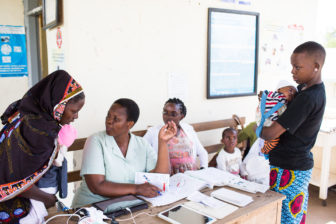
Going beyond denominators: Defining the value of electronic immunization registries to solve for health system barriers
Aug 27, 2020
Data can make the invisible visible. More complete, reliable, and real-time information on health trends, coverage rates, and service gaps can help strengthen health systems and better allocate precious resources. This fact has been recognized by a growing number of countries embracing electronic immunization registries (EIRs) to help monitor individual immunization schedules and vaccination histories. But even as countries adopt EIRs and understand their value, there are many questions about how best to implement them, as well as their effectiveness, cost, and impact on health outcomes.
Read More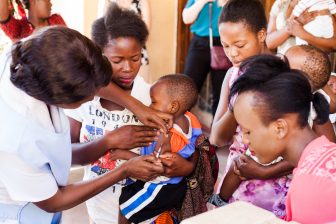
Zambia’s Ministry of Health collaborates with BID and others to strengthen immunization system
Jan 9, 2020
The Zambian Ministry of Health (MOH) is taking an innovative, new direction to close the country’s immunization gap with a new partnership that touches every component of the immunization system. The EPI Optimization (EPI-OPT) strategy brings together a consortium of technical experts and partners working collaboratively with the government to improve coverage rates.
Read More
Publication round-up: BID publishes new costing data, learnings, and best practices
Dec 3, 2019
The BID Initiative is committed to advancing the global evidence base around data quality and use interventions to improve immunization service delivery. Informed by our own progress in Tanzania and Zambia, we recently published a series of journal articles and publications that demonstrate the impact of electronic immunization registries (EIRs) on cost savings, vaccine stock levels, and data quality, among other areas. This is a round-up of recent publications and some of the learnings from each.
Read More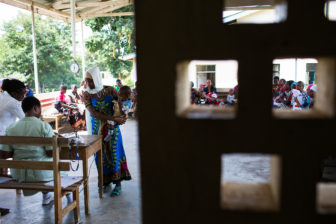
The key to better primary health care? Human-centered design
Sep 10, 2019
Human-centered design is an approach to problem-solving that puts people first. Their needs, their constraints, their contexts and their perspectives. It focuses on users—not necessarily what designers, researchers, or others think users need.
Read More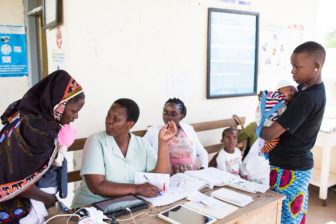
New publication defines building blocks for a successful electronic immunization registry
Aug 13, 2019
The BID Initiative has just released an exciting new publication that will benefit other countries interested in implementing their own electronic immunization registries (EIRs). In the new journal article, “Electronic immunization registries in Tanzania and Zambia: Shaping a minimum viable product for scaled solutions,” which appeared in the multi-disciplinary, open-access journal, Frontiers in Public Health, BID hopes to help other countries avoid the costly, time-consuming, and complex ramp-up often required of these digital platforms.
Read More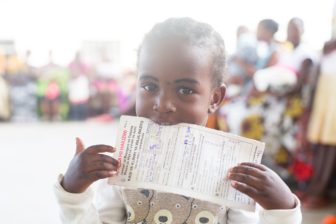
Increasing immunization coverage requires better use of better data
Apr 2, 2019
Global funders, country policymakers, and immunization program implementers know that the use of high-quality data is a cornerstone of well-functioning immunization programs. When high-quality data is available, public health decision-makers can understand which populations are underserved and where resources can be allocated most effectively. Immunization coverage rates have improved over the past few decades, but they have plateaued around 80 percent. The challenge with reaching the last 20 percent of children is to know who they are and where they are, which requires easily accessible and accurate data along with the capacity to interpret that data to take action.
Read More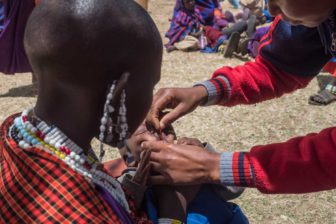
Good data saves lives: How digital record-keeping is helping transform immunisation in Tanzania
Oct 25, 2018
In the harsh, dry highland plains of the Ngorongoro region of Tanzania stands a small red tent – a tiny speck of colour in an otherwise dusty, lifeless landscape. It can be seen from several kilometres away, and that is precisely the point. Because even before Bakari Shemagembe, the local Assistant Medical Officer, and his team have finished setting up around the tent, the local Maasai tribespeople start to arrive, trickling in from all directions, drawn towards this beacon.
Read More
BID launches generic tools to help other likeminded countries implement data quality and use interventions
Sep 14, 2018
Though data quality and use interventions must be tailored to meet the different needs of countries and health contexts, many implementation tools can be recycled, modified, and reapplied. BID is committed to helping other countries avoid the costly and time-consuming ramp-up often required of projects, and so has developed a generic set of tools based on its experience in Tanzania and Zambia.
Read More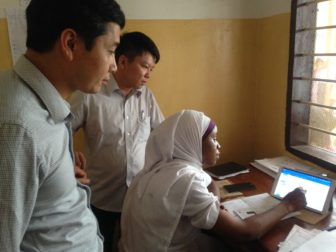
Tanzania and Vietnam forge South-South learning exchange to advance electronic immunization systems
Jul 19, 2018
Last month, PATH’s Vietnam office and delegates from the country’s Ministry of Health had the opportunity to learn from the BID Initiative in Tanzania. The learning exchange is part of a new South-South partnership forged between two countries implementing electronic immunization registries (EIR). To date, BID and the government of Tanzania have rolled out to four regions, with ten more planned for 2018. In Vietnam, PATH’s pilot EIR, called ImmReg, was first developed and tested in 2012, before expanding into the National Immunization Information System (NIIS), which was launched in 2017. Last month’s visit was a chance to deepen this partnership and trade lessons about the challenges and successes of securing government buy-in and building health system capacity for EIRs.
Read More